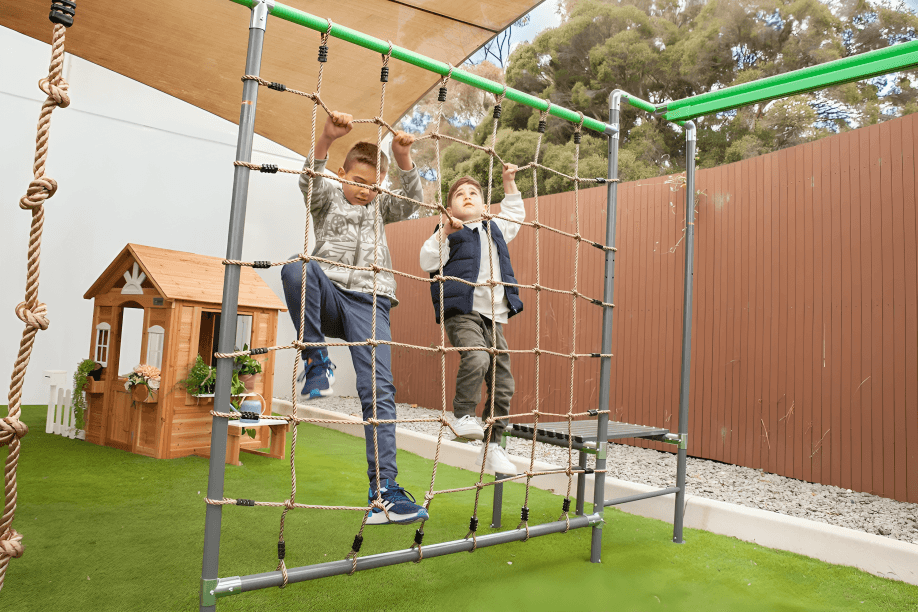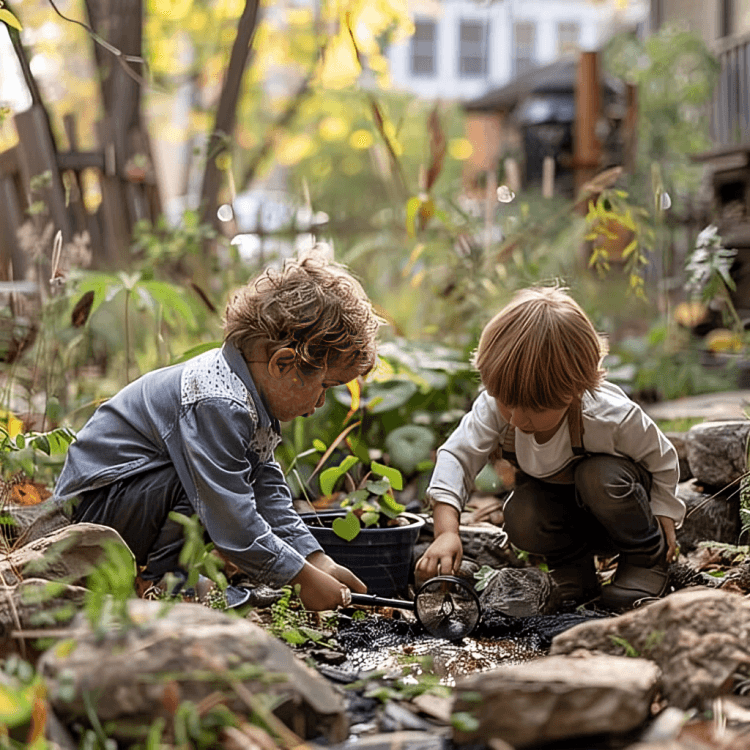
“
Outdoor play for children is essential for their growth, helping them develop physical strength, emotional resilience, and social skills. When kids engage in outdoor play for children, they experience learning far beyond classrooms. It fosters creativity, problem-solving, and strong immunity while also encouraging healthy relationships with nature and peers. 1
1
1
1
1
”
Greek philosopher Plato believed children learn best through play, especially outdoors, where their senses are engaged. Nature offers constant stimulation, which encourages curiosity and joy-driven learning. 1
Outdoor play for children boosts physical development by strengthening bones, muscles, and motor skills through activities like climbing, jumping, and running—far more effective than indoor sedentary routines. 2

Children playing outdoors in natural light absorb more Vitamin D, essential for bone growth and immune function, reducing their risk of future bone-related conditions and seasonal mood disorders.
Free outdoor activities encourage creativity and independence in children by letting them invent their own games, rules, and adventures—unlike structured indoor environments that limit spontaneous thought. 3
Interacting with other kids in open play spaces builds strong communication, teamwork, and conflict resolution skills. These social experiences are vital for emotional development and mental health. 4
Outdoor play for children reduces stress and anxiety. Being in nature lowers cortisol levels and promotes mental calmness, helping kids manage emotions and build healthier psychological patterns early. 5
Playing outside improves sleep quality. Exposure to natural light helps regulate children's internal body clocks, leading to better nighttime rest and more balanced daytime behavior and alertness. 6
Engaging in outdoor play supports better academic performance. Studies show kids who spend more time outdoors return to class with improved focus, enhanced memory, and increased cognitive flexibility. 7
Outdoor exploration sharpens problem-solving skills. Kids must assess risks, make decisions, and adapt their actions based on their surroundings, helping them grow into confident, capable thinkers. 8

Unstructured outdoor play increases resilience and self-confidence. Trying new things—like climbing, cycling, or jumping—teaches children to overcome fears and setbacks through personal effort and perseverance.
Outdoor play fosters a connection with the environment. Children who explore nature early often grow into environmentally conscious adults who respect wildlife, conserve resources, and understand sustainability. 9
Children who play outside daily develop better vision. Natural daylight reduces the risk of nearsightedness and eye strain caused by prolonged indoor screen time and artificial lighting. 10
Pediatricians like Dr. Kenneth Ginsburg advocate outdoor play as essential medicine for children’s overall well-being, highlighting its role in building strong, happy, and mentally balanced young individuals.11
Outdoor group play develops leadership and negotiation skills. Kids naturally take turns leading and following, navigating group dynamics, which prepares them for adult social and professional roles. 12
Outdoor play for children reduces symptoms of ADHD. Movement, fresh air, and nature’s unpredictability help children focus better and express themselves more freely than restricted indoor settings. 13
Physical games outdoors promote heart health from a young age. Running, cycling, and chasing games help regulate weight, lower blood pressure, and improve cardiovascular strength for lifelong health. 14
Spending time outdoors encourages mindfulness. Nature stimulates the senses in ways that screens cannot, making children more present, grounded, and attentive to the world around them. 15

Natural environments stimulate all five senses simultaneously. The textures, sounds, and scents of outdoor play create rich sensory experiences that support brain development and long-term sensory processing.
Seasonal changes teach adaptability. Outdoor play for children exposes them to changing weather, temperatures, and conditions—making them more flexible, tolerant, and appreciative of nature’s cycles. 16
It reduces screen addiction risks. Children who spend more time outside are less likely to develop unhealthy attachments to digital devices and more likely to develop healthy, active lifestyles. 17


